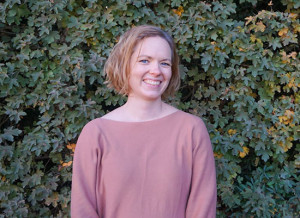Heini Väisänen

INED researcher Heini Väisänen has just been awarded a European Research Council grant, one of the European Union’s most selective and prestigious sources of research funding, for her project "Social Inequalities in the Risk and Aftermath of Miscarriage" (SOC-MISC). She has answered our questions.
(Interview conducted in December 2022)
What is the "Social Inequalities in the Risk and Aftermath of Miscarriage" (SOC-MISC) project?
The project is called “Social inequalities in the risk and aftermath of miscarriage” and as such our aim is to asses if there are any social inequalities in the risk of experiencing a miscarriage, in its mental and physical health consequences, or both. Social inequalities in the risk of experiencing a miscarriage might mean that one’s individual characteristics, such as education, social class or income, are associated with the risk of experiencing a miscarriage for instance due to increased stress levels, poorer overall health, or higher age at childbearing. It may also be that where one lives matters if, for instance, access to healthcare is worse in some areas over others.
Examining social inequalities in the mental and physical health consequences of miscarriage aims to reveal whether one’s socioeconomic characteristics are associated with the risk of experiencing negative mental or physical health consequences after a miscarriage. This could be linked to more difficult access to healthcare, lack of support networks, and/or overall poorer health status of those in more disadvantaged socioeconomic positions, or among those living in deprived areas.
Throughout the project, we will compare different contexts (Finland, France and the UK) as well as conduct longitudinal analyses taking into account the stage of the life course of those we study. Young people’s risk factors and consequences of miscarriage are likely to differ from those who are closer to the end of their reproductive life span.
Importantly, before we can conduct any of these analyses, we will tackle methodological issues that are currently causing problems in miscarriage research. This includes lack of comprehensive data on miscarriage due to it being underreported in surveys, and some miscarriages missing from administrative health records due to poor recording practices, some people’s tendency to not use healthcare services, or both. We will triangulate administrative and survey data to better understand omissions in both. In addition, there are statistical models that can be used to correct for these biases, which will produce more reliable statistics on miscarriage than ever before.
What research studies will you be able to conduct thanks to the ERC Starting Grant 2022?
It allows me to collaborate with researchers in the three countries of this project (Finland, France and the UK), hire a small team in each country to analyse these questions, and access the various administrative and survey datasets we need. It will also enable us to disseminate the work both for the scientific community and policy makers.
Are the future results intended for use in the drafting of public policies?
Yes, that is one of the main aims of this project. There have been proposals in the parliaments of both France and the UK to improve miscarriage care, and we hope to provide scientific evidence for these and any future plans to do so. This could mean, for example, tackling modifiable risk factors of miscarriage or providing support to reduce the risk of common negative physical and mental health consequences of it. The more reliable statistics that we will produce on miscarriage will also be of interest to policy makers.
